
- This event has passed.
The Evolution Of Fairy Creek: Still Going Strong
October 21, 2023 @ 3:00 pm – 5:00 pm EDT
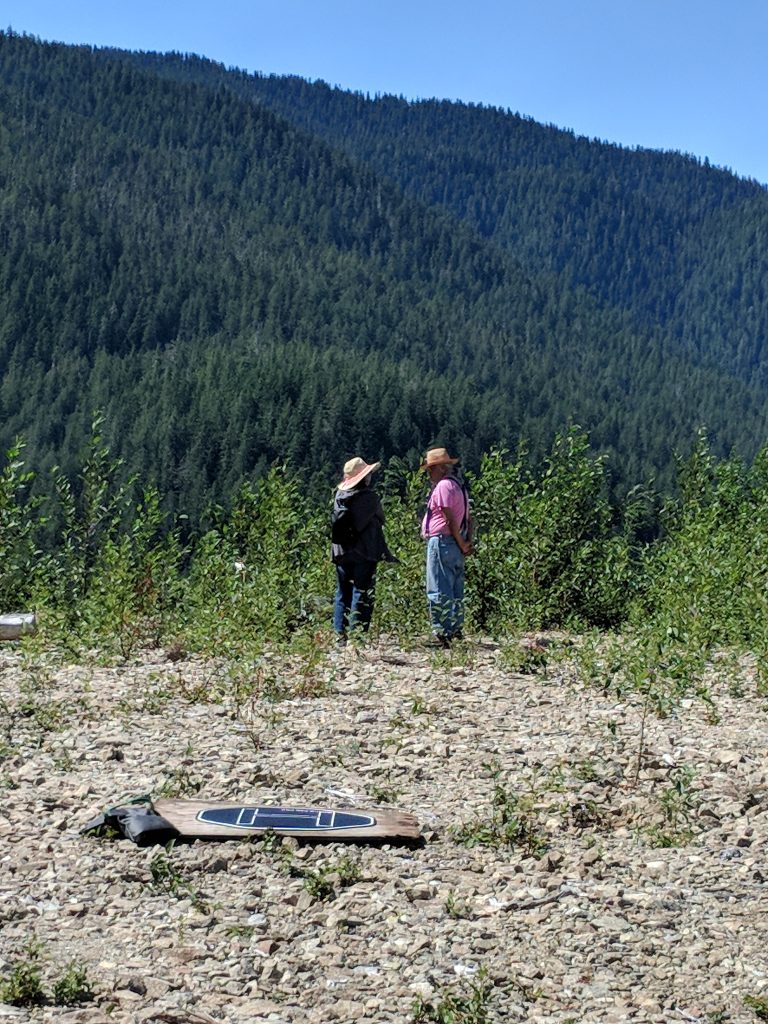
Fairy Creek has had far reaching effects since the militarized Community-Industry Response Group beat us, destroyed our camps and forced us from the forest.
Our goal was to protect the old-growth and Indigenous sovereignty, but we now understand that the social structure does not work for us. This includes the capitalist system, government, law enforcement, the courts, resource management and exploitation that goes far back in human history.
Over all looms the attempted genocide incurred by residential schools managed by church and financed by state.
We are now at the end game and face economic and climate collapse. Yet the Fairy Creek movement thrives.
We’re in the courts, at rallies, protesting to public officials, all in a peaceful manner.
We are “reIndigenizing” ourselves.
We must find unity, caring, a fair redistribution of wealth and a way to know the real world.
We must find the pathway to hope.
Panelists:
- Elder Bill Jones in Conversation with
- Kathy Code, Eco Forestry Society
- Leila Sujir
- Moderator: Sarah Turner

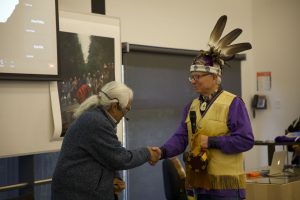
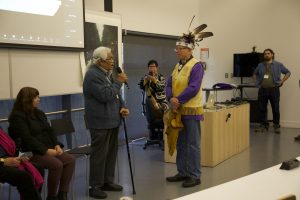
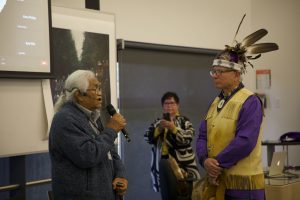
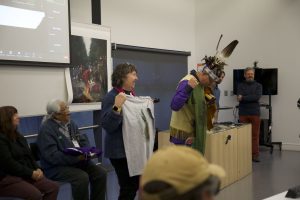
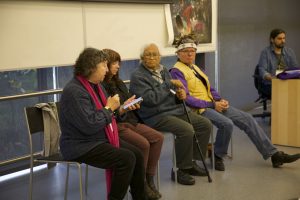
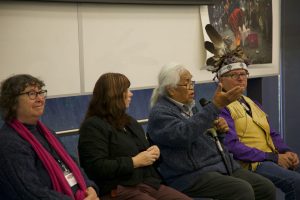
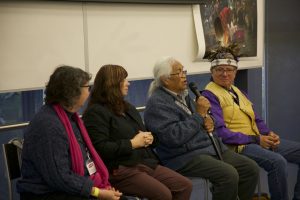
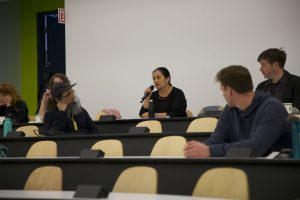
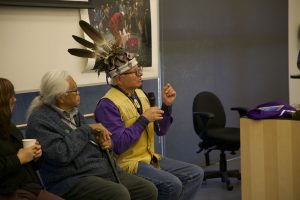
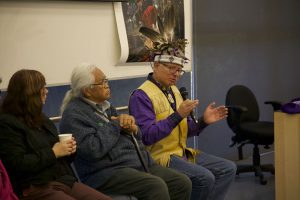
Bios
Bill Jones (Elder of the Pacheedaht First Nation)
Elder Bill leads the Fairy Creek movement, the largest civil disobedience movement in Canadian history. Seeking to protect the old-growth forests that serve as his cathedral, he has become a lightning rod for people around the world desperate to save remaining ecosystems.
Elder Bill survived the Alberni residential school, later becoming an aircraft mechanic, a logger and a practical nurse in Victoria. He returned to the Port Renfrew Pacheedaht reserve in 1979 and began logging again, only to be laid off permanently in 1984. He found intermittent employment on make-work projects, supplemented by welfare. He was involved with the Walbran struggle in 2016, then became the Elder and inspiration for Fairy Creek in August 2020. It was at his invitation that thousands of people came to Fairy Creek. Elder Bill is one of the 16 defendants charged with conspiracy by Teal Cedar for trying to protect his unceded lands from exploitation.
Kathy Code has been an avid environmentalist for the past two decades, with a deep interest in climate change, regenerative agriculture, ecoforestry, environmental economics and grassroots activism. She obtained her Masters in Environment and Management from Royal Roads University and retired as an economic development policy analyst after a 21 year career with the BC government. In 2014, she joined the board of the Ecoforestry Institute Society, trustees of the Wildwood Ecoforest, where she successfully fought to keep the property in the public domain and now serves as the Chair and Communications Director. In August 2020, she joined the Fairy Creek movement to save the remaining old-growth forests in BC and has remained as a member of the legal and media teams throughout its transition to the Rainforest Flying Squad. In the latest legal chapter, she and Elder Bill, along with 14 other defendants are now being charged with conspiracy by Teal Cedar, as the company continues to cut both old and secondary growth on Pacheedaht unceded lands. Her hope is to see the transition of the free market economy into a values-driven system based on social, environmental, cultural and economic justice.
Leila Sujir (Associate Professor, emeritus, Studio Arts, Concordia University) is an artist working in video and video installation. Over the last forty years, Sujir has been building a body of video art works using a mix of fiction, fantasy and documentary with visual and audio collage techniques. Her video art works have been shown in group shows at the Museum of Modern Art (New York) and the Tate Gallery (Liverpool), as well as galleries all over the world. Her work is in collections including the National Gallery of Canada and the Glenbow Museum. Leila Sujir is a professor emerita in the Studio Arts Department at Concordia University. She leads an art research studio-lab based at Concordia University, Elastic Spaces, that most recently received a SSHRC grant, Thinking Allowed (2022), and a Canada Council production grant (2022).
Sarah Turner (Associate Professor, Department of Geography, Planning and Environment, and member of the Loyola Sustainability Research Centre, Concordia University) received her PhD in primatology (Anthropology) from the University of Calgary. Before joining Concordia in August 2017, Sarah was a postdoctoral fellow in the Department of Biology at McGill University. Her research focuses on the behavioural ecology of nonhuman primates and other animals, and especially on how behaviour is influenced by human-induced environmental change. She conducts fieldwork at the Awajishima Monkey Center in Japan, and observing the behaviour of free-ranging Japanese macaques with physical disabilities, testing hypotheses related to behavioural phenotypic plasticity, mother-infant interactions, habitat use, and social behaviours. Recently, she has been working collaboratively on projects in Brazil related to rehabilitation and release of capuchin monkeys, as well as capuchin monkey use of fragmented habitats. Her students in the Primatology and Interdisciplinary Environmental Studies lab work on a variety of related projects, under the umbrella of animal behavioural flexibility in response to human-induced environmental change. Sarah is interested in science communication and interdisciplinary explorations of the linkages between science and fine arts, particularly in terms of human-environment relationships; she has also written and taken photographs for two children’s books.
All presentations will take place in the Amphitheatre (room # B104) of the Centre for Biodiversity.
Zoom link for Saturday to attend remotely:
https://concordia-ca.zoom.us/j/87275244560?pwd=QUFiNFViNXRBVkNCZXBLblZBZ2ZFZz09
Meeting ID: 872 7524 4560
Passcode: 422567
© 2025 Elastic Spaces
Theme by Anders Noren — Up ↑
